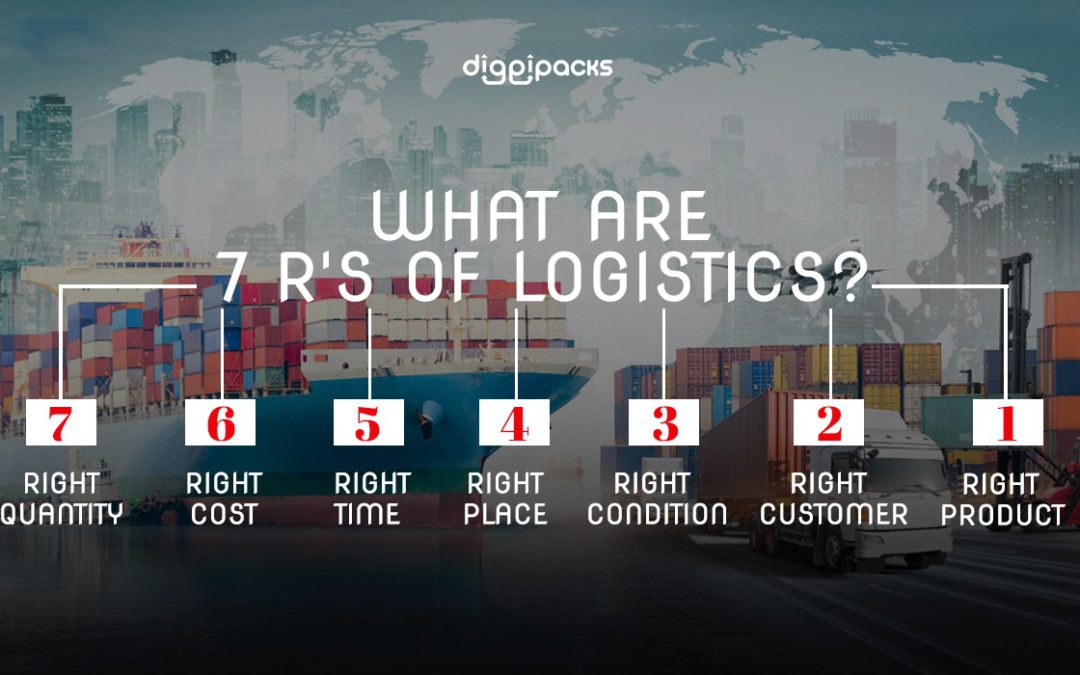The concept of 7 r’s of logistics is one of the most important and famous concepts used in logistics management, which is very briefly laying the foundations by which to achieve the smooth operation of all operations, from shipping logistics to purchasing goods for customers, and in general the logistics management requires the best planning in order to be able to Facing the complexities of shipping effectively, as well as trying to reduce costs as much as possible, below we will show you everything you need to know about 7 R’s of Logistics.
What are 7 R’s of logistics?
Now you may be wondering what is meant by 7 R’s of logistics ? In fact and as we indicated in the introduction, it is one of the most important concepts in logistics management, which means getting the right product, in the right quantity, in the right condition, in the right place, at the right time, for the right customer, at the right price.
What does 7 R’s 7 r’s of logistics do?
7 R’s of logistics significance lies in the fact that it explains the function of logistics services, and the manner in which items can be moved simultaneously that meets specific criteria, such as time, quantity, price, and others.
This in the end will help in controlling the flow of products, as well as effective planning and efficient management in storing goods and information, which leads to meeting customer needs, reducing costs and increasing profits as well.
7 R’s for better logistics management
After we got to know 7 R’s concept of Logistics, let’s explain it in some detail and explain how it can improve the logistics management process:
1. Right product
Any company that provides a service must clearly specify the type of products that it will deal with and which it is ready to transfer, and knowing the product you want to deal in will help you save a lot of time and resources, and even manage it with proper guidance.
2. Right customer
One of the most important steps is to determine the segment of customers you deal with, and thus direct the appropriate service to the right customer, and this will require you to first determine the target market to provide attractive service to customers, which must actually meet their needs.
You can rely on modern marketing methods as well as digital marketing, which will help you expand the segment of your customers and get the largest possible number of suitable customers. Digital marketing methods have proven their effectiveness compared to traditional marketing methods. Right quantity
3. Right condition
In order to be able to maintain the condition of your products or your items well, you need effective storage, as each product is stored with reference to its specifications and placed on the appropriate facilities to maintain its condition and quality, and thus deliver them in a right condition.
4. Right place
Service providers will need to have drivers who are fully familiar with delivery options, along with the importance of providing tracking systems, which must be provided to the service owner and the customer himself, and thus provide the ability to track the location and thus ensure that all products are delivered in their correct place.
5. Right time
When talking about logistical services, we find that time is one of the most important elements, especially since all customers pay great attention to the delivery time, and the presence of any delay or defect in it may cost you the loss of customers.
These calls for service providers to know what are the appropriate times to provide products in an efficient and timely manner as well. Delivery control systems can be used to verify their arrival at the agreed time.
6. Right cost
The process of pricing services is a very important thing, as each service must have an appropriate price that covers costs while achieving a profit margin, even if it is simple, and good storage systems and continuous updating of prices will help you gradually increase your profit margins.
7. Right quantity
Determining and knowing the correct quantity is one of the most important things in logistics services, as most service providers are a third party.
Consequently, all companies that deal with them must verify that the appropriate quantities of products to be delivered are sent.
With the tremendous technological development, there are modern systems that enable you to manage all quantities of goods suitable for shipping and delivery.
